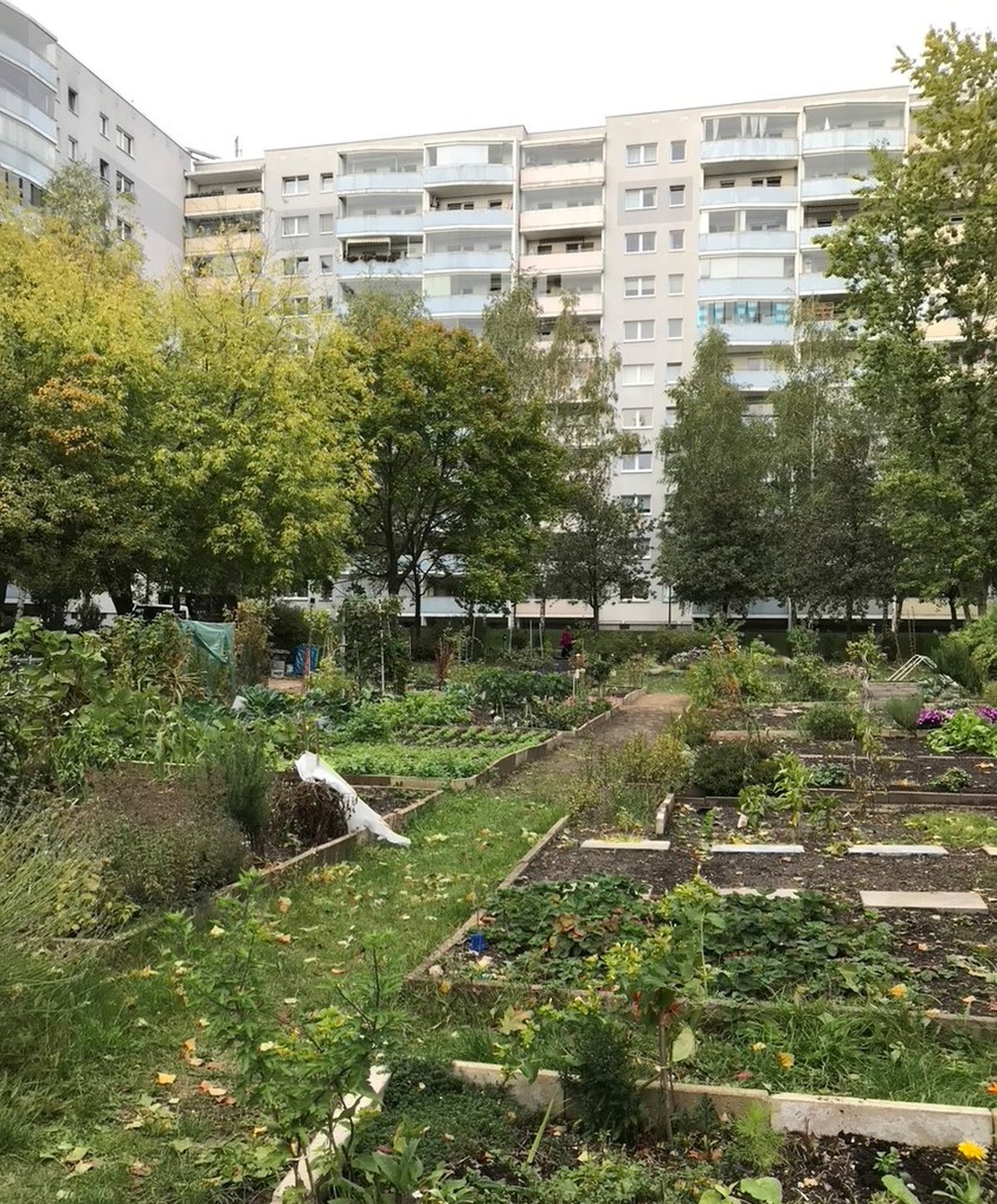2020-Sep-14 : Spiel/Feld Marzahn is part of project to win United Nations' Award
Last week, the Wild Pollinators Project received an Award for Biological Diversity in the UN Decade contest by the German Offices of the United Nations' Decade on Biodiversity.
Spiel/Feld Marzahn has been one of the partners in the project led by the National History Museum Berlin [Museum für Naturkunde Berlin] and the Technical University of Berlin [Technische Universität Berlin]. Fully titled Bienen, Bestäubung und Bürgerwissenschaft in Berlins Gärten [Bees, pollination and crowd science in the gardens of Berlin], the project was overseen for Spiel/Feld by gardener (and former chair) Maxi Greiner.
Katrin co-initiated the Spiel/Feld Marzahn Project in 2011, during her guest professorship at the TU Berlin.
Spiel/Feld Marzahn has been one of the partners in the project led by the National History Museum Berlin [Museum für Naturkunde Berlin] and the Technical University of Berlin [Technische Universität Berlin]. Fully titled Bienen, Bestäubung und Bürgerwissenschaft in Berlins Gärten [Bees, pollination and crowd science in the gardens of Berlin], the project was overseen for Spiel/Feld by gardener (and former chair) Maxi Greiner.
Katrin co-initiated the Spiel/Feld Marzahn Project in 2011, during her guest professorship at the TU Berlin.

18 Berlin community gardens were part of the winning project, apart from Spiel/Feld also the Nachbarschaftsgarten Wiecker Straße. (source: Monika Egerer 2020)
The UN Decade on Biodiversity was officially launched in Germany on November 8, 2011. It is implemented on behalf of the Federal Ministry of the Environment (BMU) and the Federal Agency for Nature Conservation (BfN). Central element of the German activities is the UN Decade contest.
In the Wild Pollinators Project, the Department of Ecosystem Science/Plant Ecology of the TU Berlin and the Natural History Museum Berlin are working together with gardeners in 18 Berlin community gardens – one being Spiel/Feld – to investigate how community gardens contribute to the protection of pollinators, especially wild bees, and which garden features can promote a wide variety of wild bees. The aim is to improve the knowledge of biodiversity, ecology and the protection of wild bees in Berlin’s urban gardens and to contribute to the social understanding of wild bees and the protection of biodiversity in cities. Both dimensions – scientific and social understanding – are crucial for the conservation of biodiversity in our cities worldwide.
In the Wild Pollinators Project, the Department of Ecosystem Science/Plant Ecology of the TU Berlin and the Natural History Museum Berlin are working together with gardeners in 18 Berlin community gardens – one being Spiel/Feld – to investigate how community gardens contribute to the protection of pollinators, especially wild bees, and which garden features can promote a wide variety of wild bees. The aim is to improve the knowledge of biodiversity, ecology and the protection of wild bees in Berlin’s urban gardens and to contribute to the social understanding of wild bees and the protection of biodiversity in cities. Both dimensions – scientific and social understanding – are crucial for the conservation of biodiversity in our cities worldwide.
For more information on the award see here.
For information on the Wild Pollinators Project see here.
For more information on the Spiel/Feld project's design see its Practice page on this website.
To keep up to date with the project's development see our blog Productive Urban Landscapes.
For information on the Wild Pollinators Project see here.
For more information on the Spiel/Feld project's design see its Practice page on this website.
To keep up to date with the project's development see our blog Productive Urban Landscapes.










